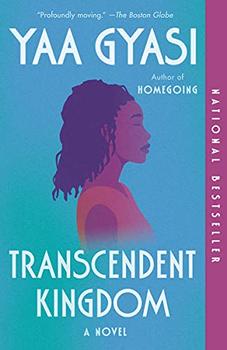Book Club Discussion Questions
In a book club? Subscribe to our Book Club Newsletter!
For supplemental discussion material see our Beyond the Book article, Gerard Manley Hopkins and our BookBrowse Review of Transcendent Kingdom.
Please be aware that this discussion guide will contain spoilers!
- How do Gifty and her mother use prayer differently throughout their lives, and especially after Nana's death? What variations of prayer do the two women discover in the novel?
- How does Gifty approach the moral predicament of running her science experiments on mice? What elements of her faith and sense of connection to God's creations are evident in how she treats the mice?
- Consider the stigmas surrounding addiction, especially opioid addiction, the rates of which are exploding in today's society. What other stigmas and expectations was Nana responding to by not asking for help to deal with his addiction, and others not doing more to help?
- In what ways does Gifty take on the role of caretaker for those in her life? Who, if anyone, takes care of Gifty?
- Gifty admits that she values both God and sciences as lenses through which to see the world that both "failed to fully satisfy in their aim: to make clear, to make meaning" (198). Why does she have to lead with the caveat that she "would never say [this] in a lecture or a presentation or, God forbid, a paper"? How does the extreme belief in science mimic the faith of the religious zealots she turned away from?
- What messages do Gifty and Nana hear about the intersection of race and poverty in their youth church meetings? How do the siblings respond to the conflation of the two—and what does the assumption that African countries are impoverished or need saving by missionaries suggest about the colonial power dynamic engrained in our society?
- Gifty refers to her relationship with her mother as an "experiment." Are there similarities in the way Gifty approaches her work and her relationship with her mother? How did the separate events of losing the Chin Chin Man and Nana's death affect their relationship? Throughout the course of their lives, how does Gifty determine whether or not her and her mother are "going to be ok" (33)?
- Throughout the book, Gifty struggles to find a sense of community in places where people traditionally find it (school, work, family, church, etc.). What life experiences shape her understanding of community? In what ways does this affect her ability to build relationships with the people in her life (Anna, Raymond, Katherine, Han)?
- Explore the idea of humans as the only animal "who believed he had transcended his Kingdom" (21). How does this idea influence Gifty's relationship with science? With religion?
- Describe the difference between Gifty's connection to Ghana and her connection to Alabama. In what ways does she feel connected to her Ghanaian ancestry?
- How does Gifty feel when she overhears congregants gossiping about her family? How does this experience influence her relationship with the church? With her family? With God?
- Gifty privately considers her work in the lab as holy—"if not holy, then at least sacrosanct (p. 92)." Explain her reasoning, and why she chooses not to discuss this feeling with anyone.
Unless otherwise stated, this discussion guide is reprinted with the permission of Vintage.
Any page references refer to a USA edition of the book, usually the trade paperback version, and may vary in other editions.
For supplemental discussion material see our Beyond the Book article, Gerard Manley Hopkins and our BookBrowse Review of Transcendent Kingdom.
